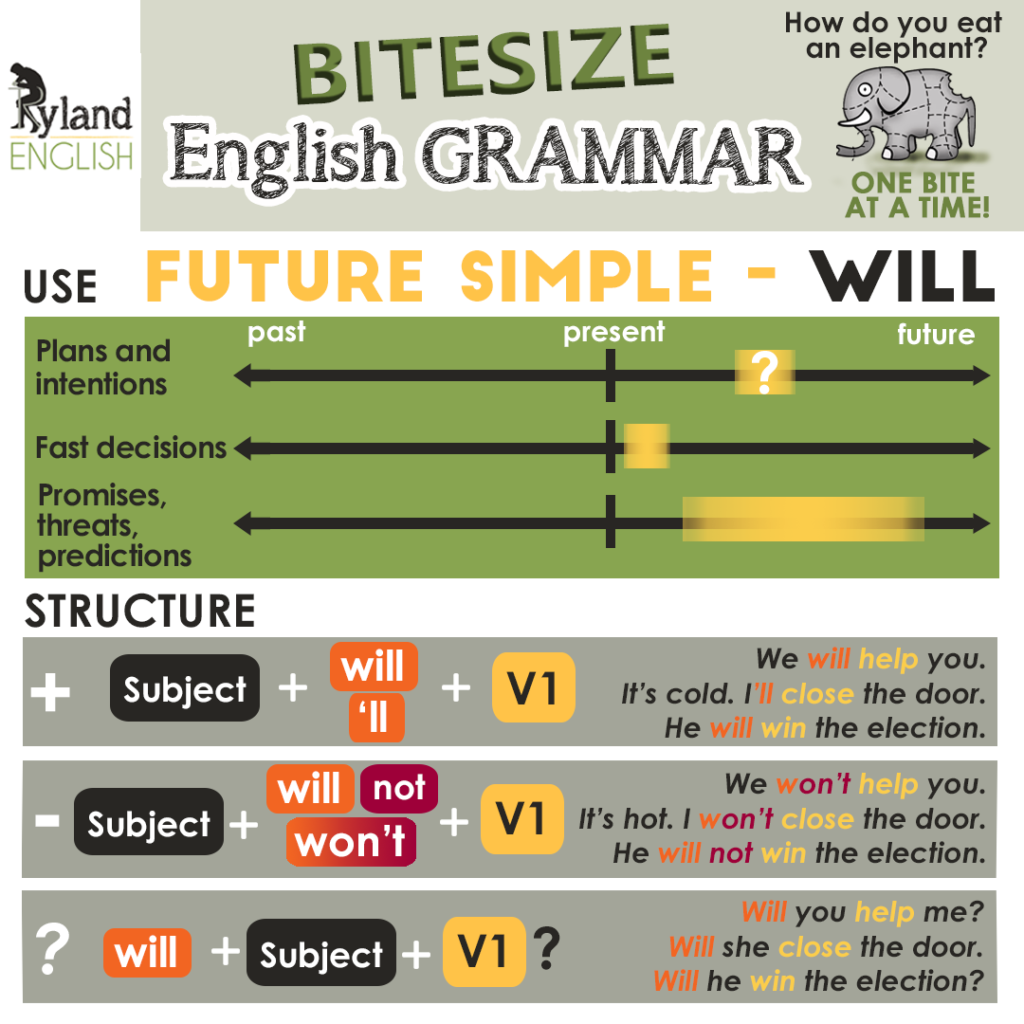
Verb tenses… hmmm… the least exciting of all grammar topics. At least to me!!
So let’s try and make it a bit more interesting by exploring ways to use it in context.
In real life English native speakers do not consider what tense they need to use, they just know!
To help you remember we will explore some when and how to use them… Ready?
Confusingly the FUTURE SIMPLE can be formed using both WILL and BE GOING TO to talk about actions or events in the FUTURE, [and in some of the conditional forms but that is for another lesson… 😏] and yes, I know! It is crazy…
What’s the difference between WILL and BE GOING TO? Both can be used interchangeably in some cases; predictions and guesses.
WILL is the preferable form for making offers or expressing pop decisions.
BE GOING TO is preferable for strong intentions or for describing the inevitable.
This lesson will focus on how to use WILL.

WARNING!!
Sometimes FUTURE TIME can be expressed with either the PRESENT SIMPLE and PRESENT CONTINUOUS. In such cases, time words must be used or clearly implied.
How to use WILL for the FUTURE SIMPLE…
To talk about PLANS AND INTENTIONS like PROMISES, REQUESTS, REFUSALS or OFFERS – often when we’re talking about a decision at the moment of speaking. This is about wanting to do something or not wanting to do something.
I will take the bus to get there.
[Anna] – I am selling this sofa. [Me] – I’ll take it!
We won’t help you move house.
To PREDICT what will happen – We can use it for future facts and for things that are less certain. We often use it if there is no reason to use another future tense.
The sun will rise tomorrow at 8 o’clock.
That party will win the elections.
She won’t listen to you.
HOW TO PUT IT TOGETHER TO MAKE SENTENCES?
The FUTURE SIMPLE is basically formed by using WILL and the base form of the verb [V1], or the infinitive without the ‘to’. You will be happy to hear that it is the same for all persons [I, You, He/She/It, We, You, They].
Affirmative sentences
For sentences that are ‘positive‘ or affirmative, you can just use WILL and the base form.

Negative sentences
For sentences that are ‘negative‘ you also use WILL and the base form, but you have to add ‘not’ after WILL. It can be contracted to won’t.
Remember;
‘will not’ = ‘won’t’

Questions
For questions, we also use WILL and the base form, but you simply swap WILL and the person/entity responsible for the action [the subject].

To make a negative question simply add a not to WILL.
Won’t she work on Sundays?
And that is it! It wasn’t too bad after all! 😎
Here you have an online game to help you practice what you have learnt! ENJOY!!
There is a nice collection of all types of FUTURE SIMPLE exercises on this page!!
